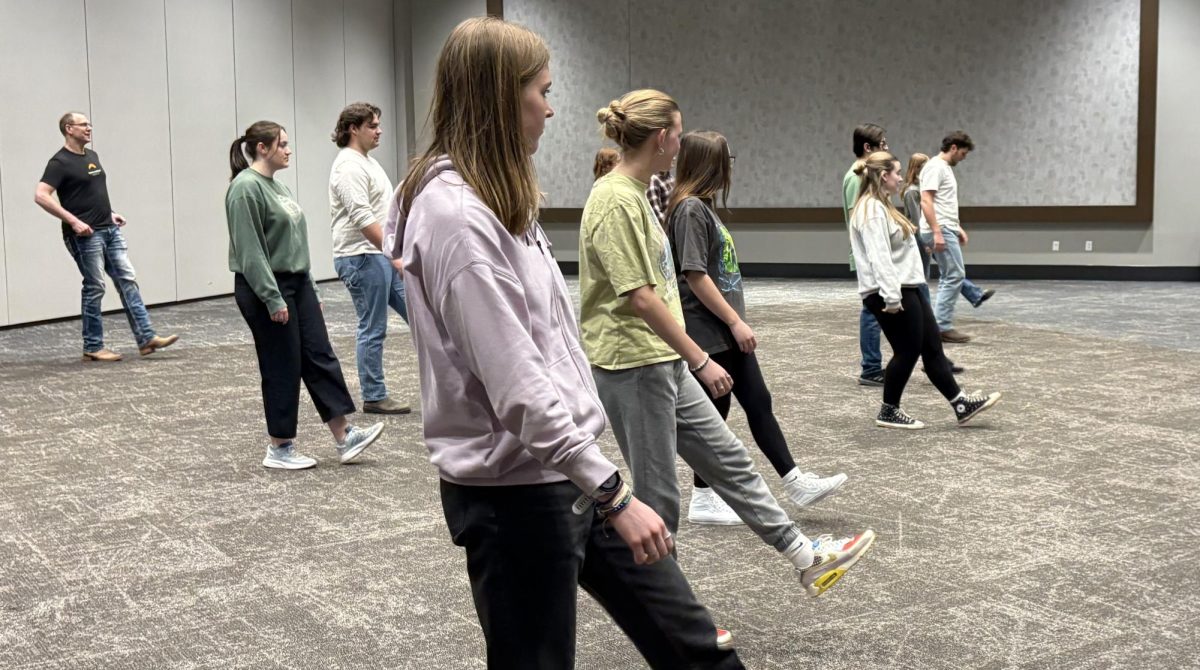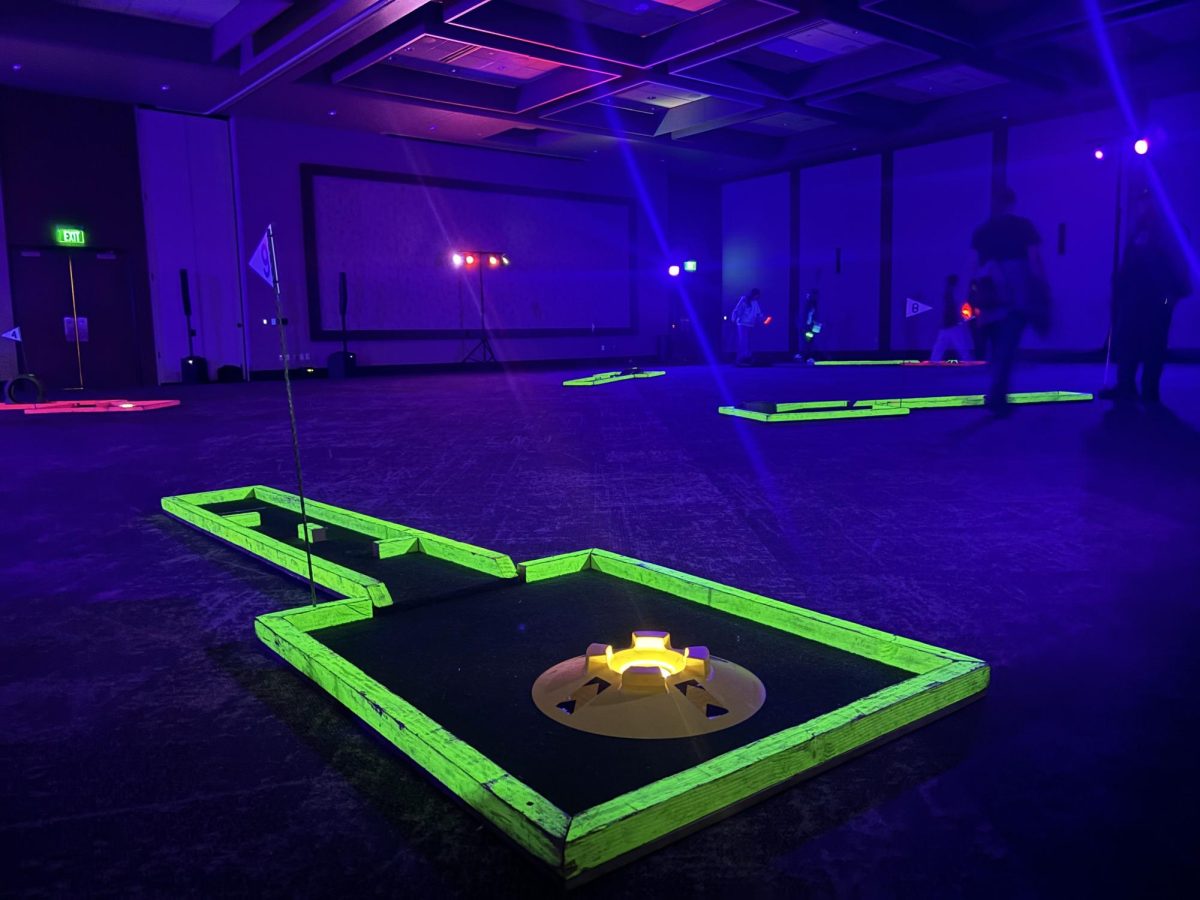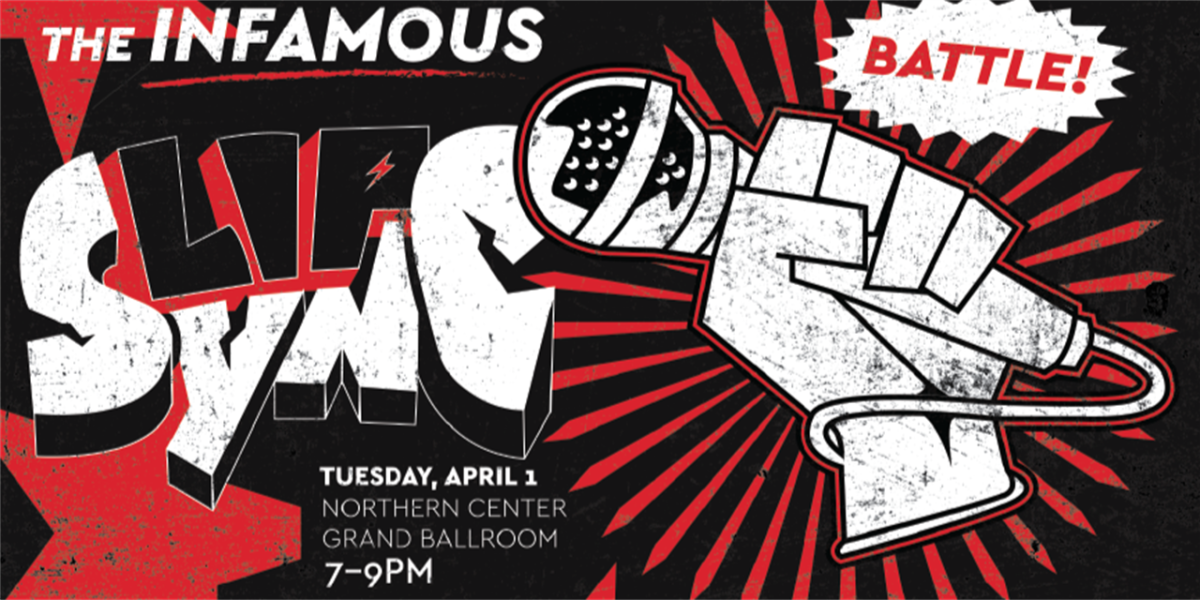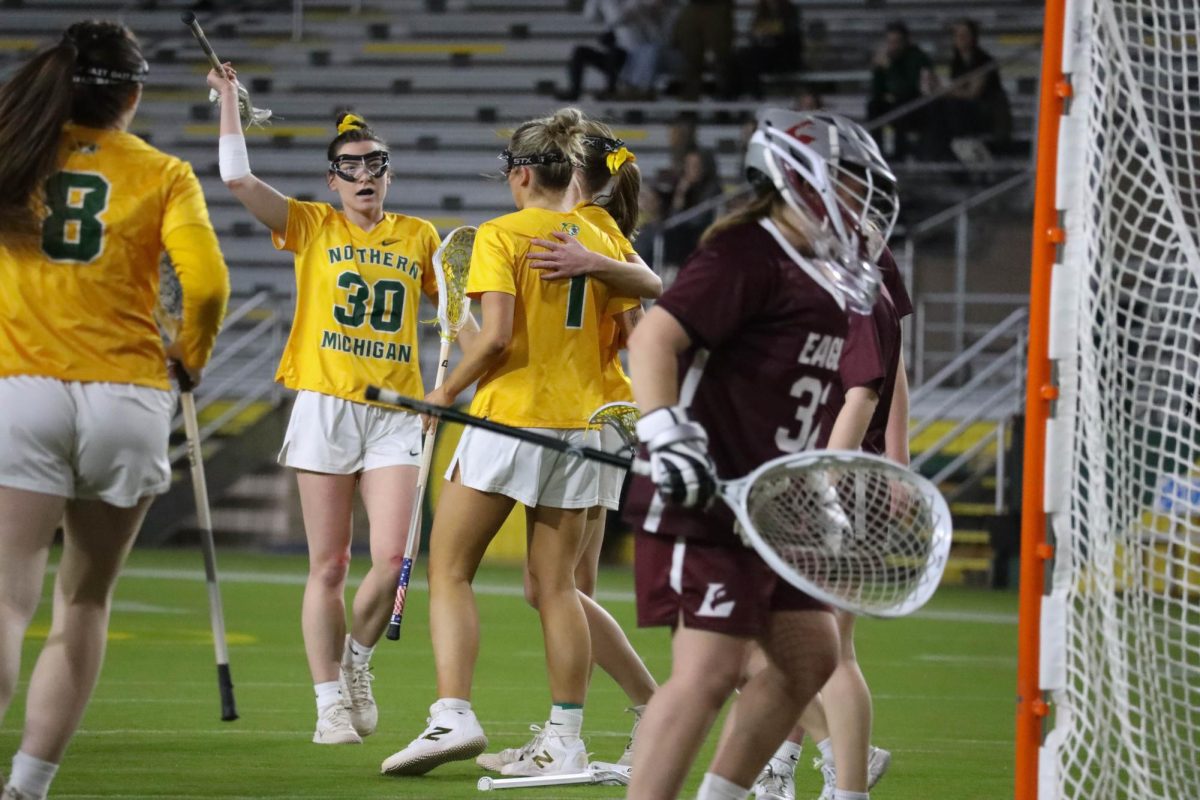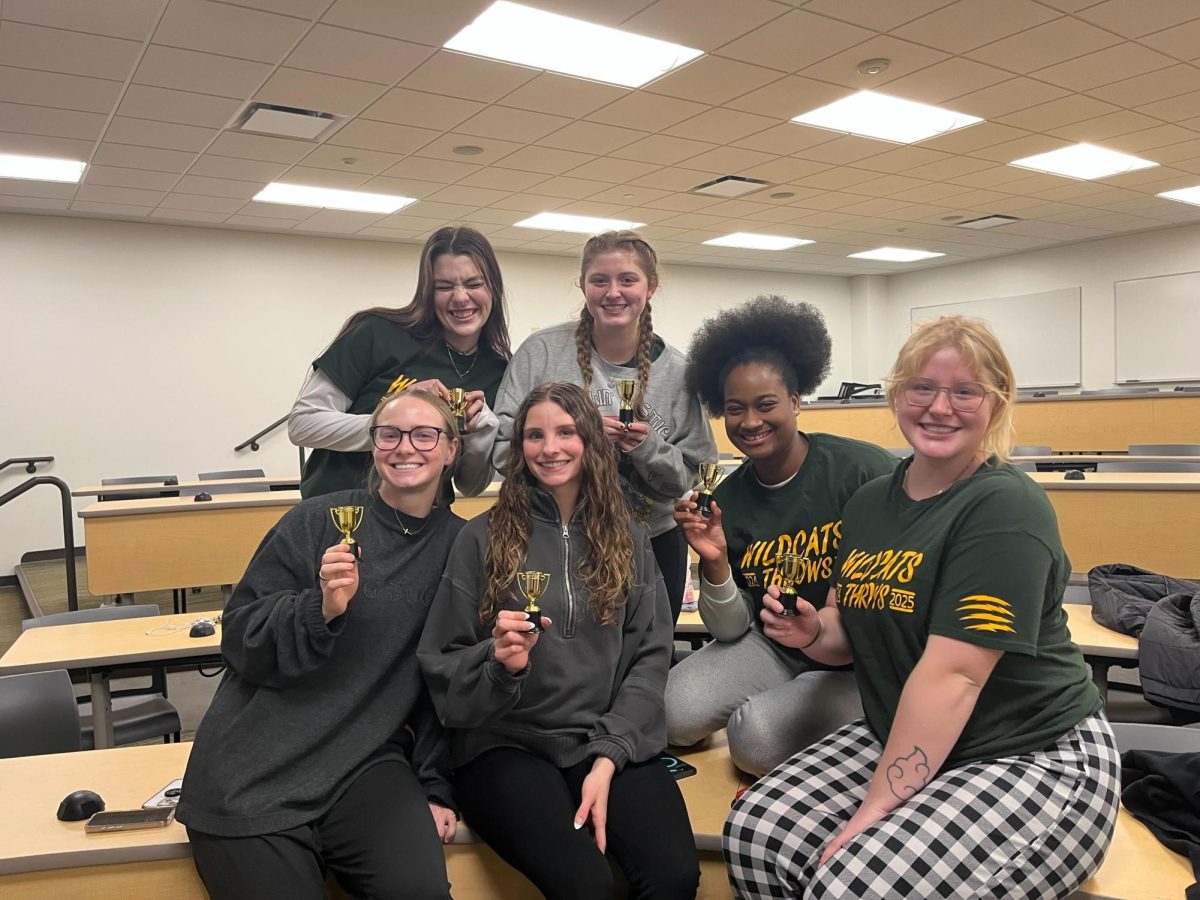On Friday mornings men and women file into the exercise lab, eager to get started on their second day of training for a goal of being healthier, building community and having a great time.
One thing the participants have in common is they’re all cancer survivors.
An eight-week research study conducted by NMU’s school of health and human performance began on March 15. The study is to validate a hypothesis that activities like climbing have greater positive emotional benefits than traditional exercise methods like treadmill and weightlifting.
“There’s a big health crisis worldwide and here in the United States. Cancer patients and survivors feel limited in what they can do so they often don’t even try to exercise,” Mindie Clark, an exercise science graduate student helping to lead the project, said. “This rock climbing shows them what they can do and empowers them so they don’t have a downward spiral with their health.”
For the study, the five participants in the program meet on Wednesdays and Fridays from 8 to 9:15 a.m. in the Exercise Science Lab or room 146 in the Physical Education Instructional Facility (PEIF). All of the participants are survivors of different cancer types and they have each completed surgery and chemotherapy cancer treatments.
The study is led by Scott Drum, associate professor of exercise physiology, and graduate students Mindie Clark and Marisa Heckendorn but many people helped create the program. Clark said Drum approached both her and Heckendorn to help lead the research.
“He’s great about including grad students and giving them opportunities,” she added.
At the start of the study, participants were assessed physically as well as psychologically, by health-related questionnaires, to record their individual baseline measurements. For the first four weeks all participants undergo traditional gym exercises to improve cardio, aerobic, flexibility, balance and muscular fitness—tailored to each of their unique ability levels. After four-weeks they are evaluated again and then split into two separate groups.
One group will continue doing traditional exercises while the other will focus on climbing activities on the bouldering wall in the lab, then eventually on the climbing wall in the PEIF.
“It’s important to explore alternate ways to stay healthy, in shape and have fun at the same time,” Heckendorn explained. “It’s to get cancer survivors out of their comfort zones but also to give them self-confidence.”
The participants appeared as enthusiastic as the researchers about the study on Friday.
“I like it a lot,” said Jim Vereb of Gwinn, 60, a lung cancer survivor diagnosed three years ago. “I know I need to exercise more, keep limber and keep my health up. I plan to continue working on my fitness at home too when this program is over.”
“It’s great,” said Dave Wyble of Marquette, 56, an NMU alumnus and survivor of prostate cancer. He participated in the YMCA’s LiveStrong program, which also improves the health of cancer patients. “I’m a real proponent of group activity for cancer survivors. It’s nice NMU has it.”
Since there’s only five participants, Drum called the experiment a case study or pilot program. When it’s done, the data will be analyzed and the findings published in a peer-reviewed journal. Drum intends to do more studies in the future, hopefully even researching the effects of exercise on patients currently undergoing cancer treatments.





